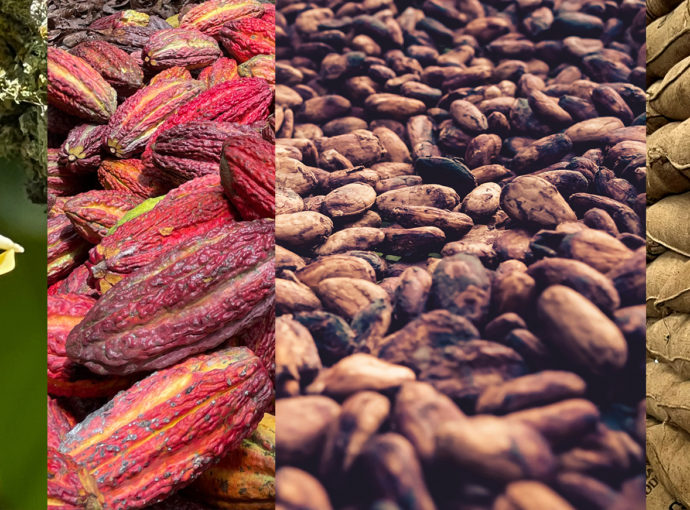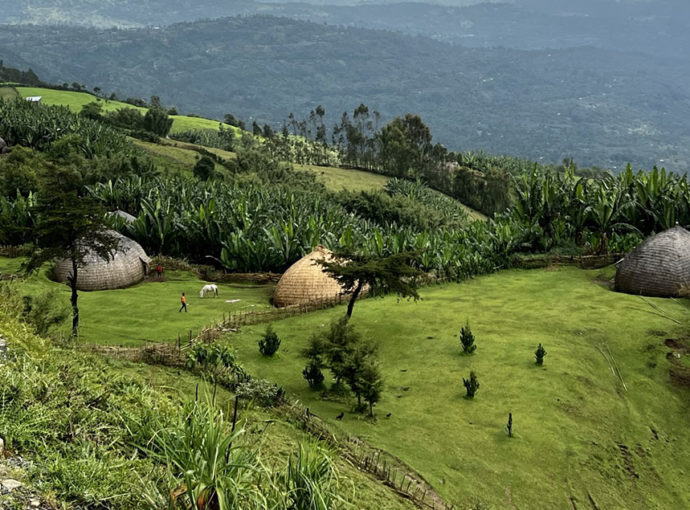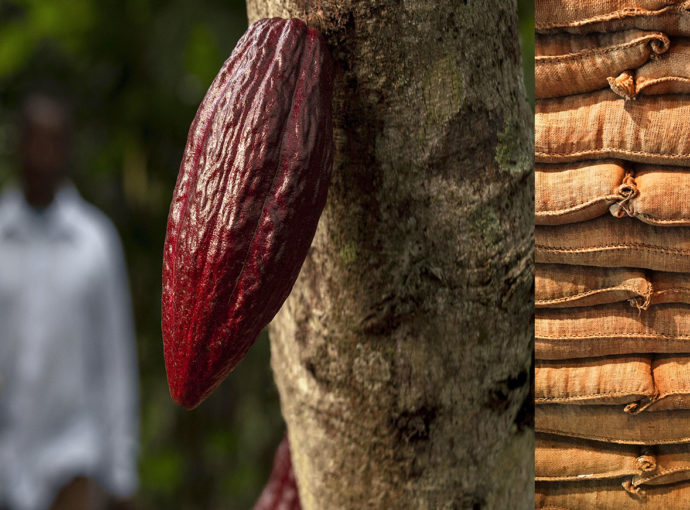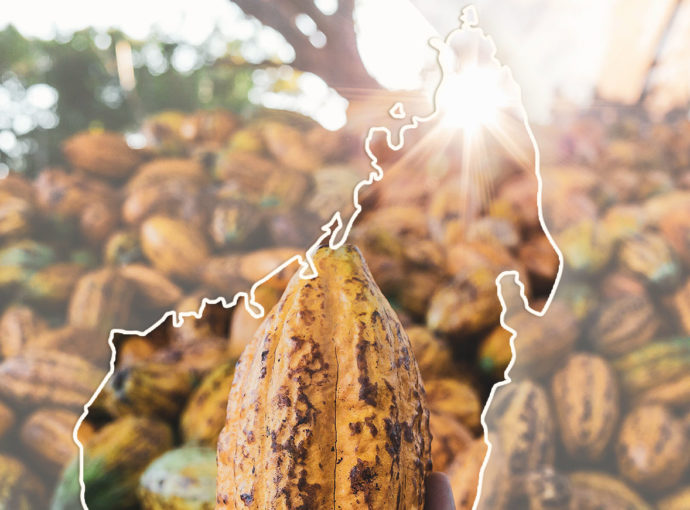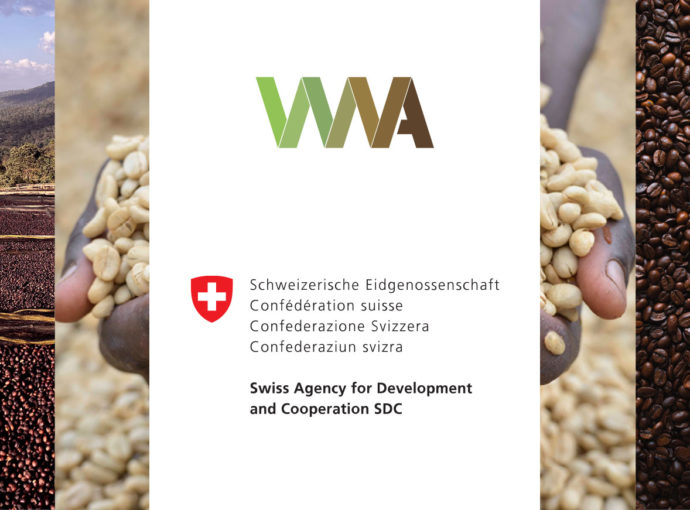Walter Matter joins SWISSCO
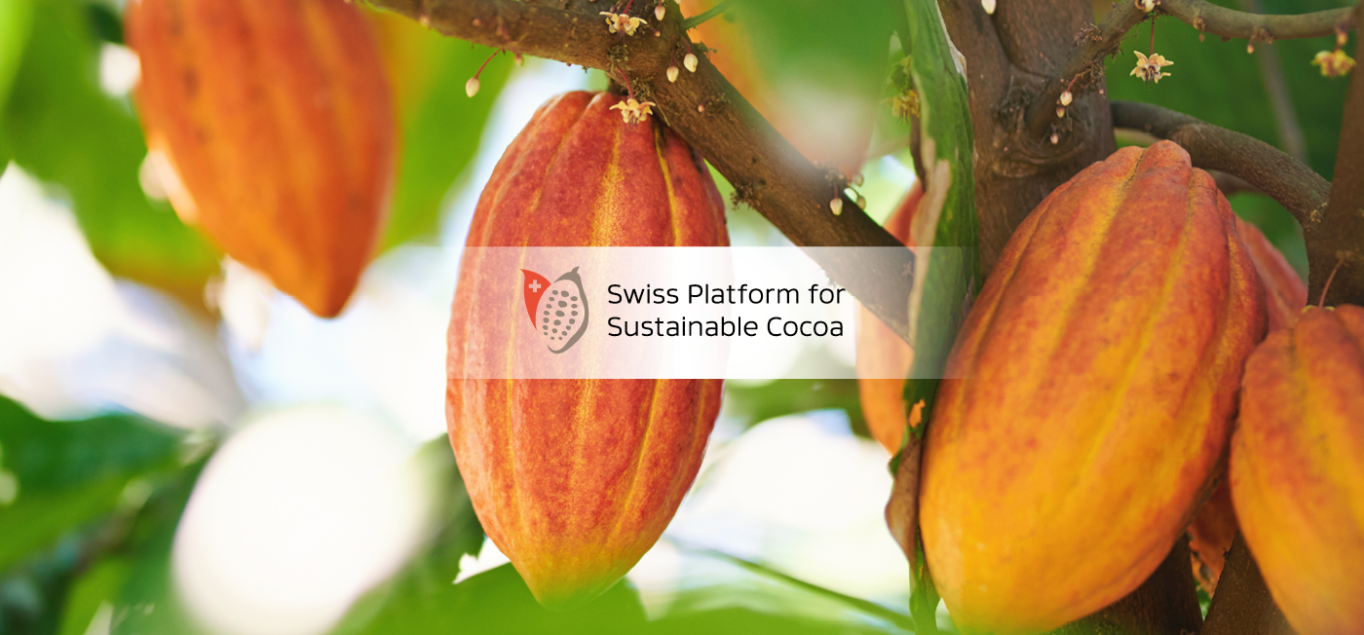
The cocoa industry faces many challenges – from climate change, poverty and child labour issues to poor infrastructure and inadequate financing. Walter Matter partners with the Swiss Platform for Sustainable Cocoa (SWISSCO) to tackle these urgent issues together, in collaboration with the Swiss actors from the value chain.
The platform was set up in 2018 by Swiss manufacturers, traders, retailers, not-for-profit organisations, research institutions with support of the federal government, to enhance the sustainable cocoa sourcing. It has since established itself as one of the leading bodies monitoring the cocoa supply chain, helping to implement sustainable practices and fostering collaboration between nearly 80 of its members from all parts of the supply chain.
SUSTAINABLE COCOA
“Cocoa which is produced and sourced from a system that strives for decent living conditions of cocoa farmers and their families, promotes climate mitigation and adaptation and protects biodiversity, and aims at an economically viable and transparent cocoa value chain, both for present and future generations.” – SWISSCO
SWISSCO works closely with the Swiss State Secretariat for Economic Affairs (SECO), which has co-funded 14 major projects on innovative sustainable solutions in the cocoa value chain. The projects have reached close to 100,000 cocoa farmers in Western Africa, Uganda, Madagascar, Peru, Colombia and Costa Rica, and span from income diversification and market access, to agroforestry and increasing farm productivity.
We sat down with Christian Robin, SWISSCO’s Executive Director – with 14-year experience in various roles at SECO – to talk about the main goals of Roadmap 2030, a detailed agenda on “Tackling Challenges Together”, approved by members at the General Assembly Meeting in September 2021.
The roadmap refers to four selected Sustainable Development Goals (SDGs): 1) Living income for cocoa farmers and their families; 2) Deforestation-free and climate-friendly cocoa supply chain; 3) Tackling child labour and improving perspectives of youth; 4) Enhancing transparency and traceability within the cocoa supply chain.

You were there at the beginning stages of SWISSCO, why was it important to have the platform established?
Christian:
A large proportion of cocoa farmers has been affected by poverty, particularly in West Africa.
Climate change, with rising temperatures and irregular rains, has had a negative impact on crop productivity and overall yields, which results in low income for smallholders who struggle to meet basic needs. It is extremely difficult for cocoa farmers to get out of poverty without the ability to increase production or to pay adequate wages to skilled workers.
Even with good progress made in the cocoa value chain, we still need to do much more to help cocoa farmers deal with these problems.
And looking at the complexity and scale of the challenge, individual companies can only do as much when acting alone. That’s why SWISSCO was set up. Our mission is to foster cross-sectoral partnerships, enable stakeholders across the supply chain to work together and contribute to impactful changes.
Why was Roadmap 2030 created and what are its main goals?
Christian:
The Roadmap 2030 framework contains 12 measurable targets that are to be evaluated throughout the next several years, relying on the members’ transparency and accountability Thorough Measuring, Evaluating and Learning (MELs) processes have been put in place to gather data from across the supply chain and to utilise them to come up with meaningful and informed solutions.
It’s at farm level, where the biggest challenges of the cocoa supply chain arise. Poverty creates a vicious cycle – insufficient funds for wages leads to child labour and improper farming practices, which result in low yields and inadequate incomes. And this also leads to deforestation. It’s all connected, making it a problem for all of us and it can only be solved together. It is impossible to tackle these issues in isolation.
Sustainable sourcing is at the top of SWISSCO’s priorities, can you elaborate?
Christian:
One of the Roadmap’s prominent targets is to increase the level of certification and sustainable sourcing in general, which is largely driven by the global demand for certified products. In 2021, 71% of cocoa imported to Switzerland came from sustainable sourcing. Overall, we are well on our way to meet the goal of 80% by 2025.
I believe our approach is working for private, public, and nonprofit entities, and appreciate every member’s contribution and engagement with our activities and projects. We really do have a committed community here in Switzerland, and we can all be held accountable to the Roadmap. We’ve got a solid foundation to work with.
How do members contribute to the success of the strategy?
Christian:
For instance, all importers report, on an annual basis, their imports to the Swiss market, and the extent of their implementation of sustainability standards or equivalent instruments. Really, all the members are committed to contribute this data, but of course also contribute with concrete activities too, to reach our common targets.
In our most recent baseline survey, we gathered data from 90% of our members, which I think is a remarkable achievement – it shows real initiative and drive to solve the industry’s issues. We work with the data to assess progress and identify any gaps.
In July 2022, we had a meeting on traceability with our members who shared their experiences. We’ve also introduced a platform facilitating investments for joint projects on the ground, and we are proud to have the resources to facilitate collaborations in selected sourcing regions, on so-called “landscape development projects”. One of our objectives is to create a common framework for our members, and even non-members, to come together and develop their own agendas to promote sustainability. My ambition is to have all of our members involved in the ground projects, eventually.
In summary, our success stands on four pillars, all of which are highly dependent on our members’ engagement: 1) the general awareness and acknowledgment of the issues within the industry; 2) transparency among the supply chain – which fosters peer learning; 3) private and public partnerships, and investment; 4) policy and cooperation on an international level, and with the producing countries.
The European Union is about to ban the import of cocoa, which has been proved to have a link to deforestation and human rights violations. Can you tell us what it means for the industry?
Christian:
Well, it certainly pushes the industry in the right direction. However, change doesn’t happen overnight and implementing the regulations won’t be easy, and it might have a negative impact on many actors of the supply chain – especially at farm-level. SWISSCO aims to go beyond the regulations with the goal to solve the core issues that led to the ban.
How does SWISSCO go beyond the EU regulations?
Christian:
Deforestation and child labour are usually the last resort that the farmers turn to – nobody really wants to be cutting down trees and have their children work in the field, but they will when it’s a matter of survival. Poverty plays a major role in decision-making. Poor agricultural practices result in very small and unproductive plots, which causes low yields, and then, farmers often see themselves forced to expand the farmlands, which means going into forested areas.
We work with local partners and authorities to identify the communities in need and provide tailored assistance in reforming the system. That includes technical training, funding, and appropriate education in support of self-sufficiency and income diversification. The Roadmap 2030 really breaks the challenges down and provides guidelines for implementing changes across the entire supply chain.
How have end consumers played a role in pushing sustainability forward?
Christian:
Since the 1990s, consumers have had a major influence on the production and therefore on the import of the cocoa industry. But chocolate alone is not the problem, nor is it the reason behind poverty in Ghana or the Ivory Coast. It does, however, provide us with a spotlight pointing towards these very complex realities on the ground – poor infrastructure, lack of self-sufficiency, education, deforestation, national governments’ role, international cooperation and other problems. We, the industry, including all the stakeholders of our platform, are taking our responsibility to address these challenges together considering our possibilities and our boundaries.
RECENT NEWS





